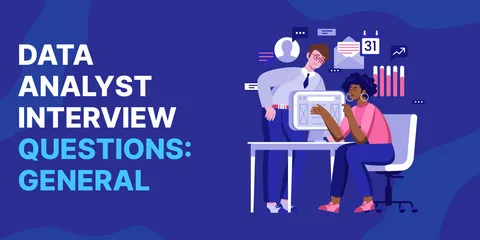Preparing for a data analyst interview is as much about mindset as it is about memorising questions. Recruiters and hiring managers are not just looking for technical accuracy; they are evaluating how you think, how you communicate, and how you apply data reasoning to business problems. This guide walks through the types of questions you can expect, why they are asked, and how best to approach them.
Understanding The Interview Landscape
Data analyst roles vary widely depending on the industry and company size. A start-up may test your ability to wear multiple hats, while a large multinational will probe deeply into statistical rigour and stakeholder communication. The interview is typically divided into four streams: technical skills, analytical thinking, business acumen, and cultural fit. Recognising this structure allows candidates to prepare across all dimensions rather than focusing only on tools.
Technical Fundamentals
Expect questions on SQL, Excel, and data manipulation. Interviewers may ask you to write a query to join tables, filter records, or calculate aggregates. Proficiency in these basics demonstrates that you can handle the day-to-day work of querying databases. Knowledge of Python or R is also frequently assessed, with questions ranging from writing simple scripts to cleaning datasets or producing visualisations. Employers want evidence that you can not only retrieve data but also transform and prepare it for analysis.
Statistical And Analytical Questions
Hiring managers will often test your grounding in statistics. Common areas include probability, hypothesis testing, correlation, regression, and sampling. For example, you may be asked how to test whether a new marketing campaign increased conversions, or how to check if two variables are correlated. These questions reveal whether you can apply statistical reasoning to business scenarios. Be prepared to explain not just the “what” but also the “why” behind your chosen approach.
Case Studies And Business Scenarios
A growing trend in data analyst interviews is case-based questioning. You may be presented with a dataset or a business problem and asked to recommend next steps. For instance, “A retail company sees declining sales in one region. How would you investigate the cause?” Here, the focus is on structured thinking, clarity in assumptions, and logical sequencing of actions. Even if you do not arrive at the perfect solution, demonstrating a disciplined approach will set you apart.
Data Visualisation And Storytelling
Data analysts are expected to communicate insights effectively. Interviewers may ask how you would present results to a non-technical audience, or what chart type you would use to highlight certain trends. Be ready to justify your choices: a bar chart for comparison, a line chart for time trends, or a scatterplot for relationships. Storytelling with data is less about ornate design and more about clarity and persuasion.
Behavioural And Soft Skill Questions
Employers are also interested in how you handle ambiguity, collaborate with teams, and manage deadlines. Typical behavioural questions include:
- “Tell me about a time you worked with incomplete data.”
- “How did you manage conflicts between business requirements and technical limitations?”
- “Describe a situation where your analysis changed a business decision.”
These questions are not about right or wrong answers but about your ability to adapt, communicate, and demonstrate resilience.
Tools And Platforms
Depending on the role, you may be asked about specific BI tools such as Tableau, Power BI, or Qlik. Interviewers might also explore your familiarity with databases like MySQL, PostgreSQL, or cloud platforms such as AWS and Azure. Demonstrating versatility is an advantage, but it is equally important to highlight depth in at least one tool. This assures employers that you can contribute productively from day one.
Preparing For Domain-Specific Questions
Data analysis in finance, healthcare, retail, or technology comes with domain nuances. Finance roles might ask about risk metrics or portfolio analysis, while healthcare roles could focus on patient outcomes or compliance. Researching the sector you are interviewing for will allow you to anticipate domain-specific questions and align your answers with industry priorities.
Mock Interviews And Continuous Learning
Mock interviews are invaluable for building confidence. Practising aloud, whether with peers or mentors, improves articulation and sharpens your ability to respond under pressure. Complementing practice with structured learning, such as enrolling in a data analyst course in Bangalore, gives you access to guided case studies, interview workshops, and exposure to real-world datasets. You can also explore resources like this comprehensive comparison of the best data analytics courses to evaluate which institutes offer the right blend of training, mentorship, and placement support for your career goals. This combination ensures you are not just theoretically prepared but also job-ready.
Common Mistakes To Avoid
- Candidates often fall into the trap of overemphasising tools while neglecting business impact.
- Remember that an employer values your ability to generate insights that influence decisions, not just your ability to code.
- Another mistake is giving overly complex answers; clarity and simplicity usually impress more than jargon-heavy responses.
- Finally, failing to ask your own questions at the end can signal a lack of curiosity. Intelligent questions about the company’s data culture, tool stack, or upcoming projects show initiative.
The Road To Success
Interviews for data analyst positions are designed to test both technical depth and applied intelligence. Approaching them with a balance of skills, structured thinking, and clear communication greatly increases your chances of success. For aspirants, blending self-study projects with formal pathways such as a data analyst course in Bangalore creates a comprehensive preparation plan. The more you practise and learn in real contexts, the more confidently you can demonstrate value to prospective employers.

